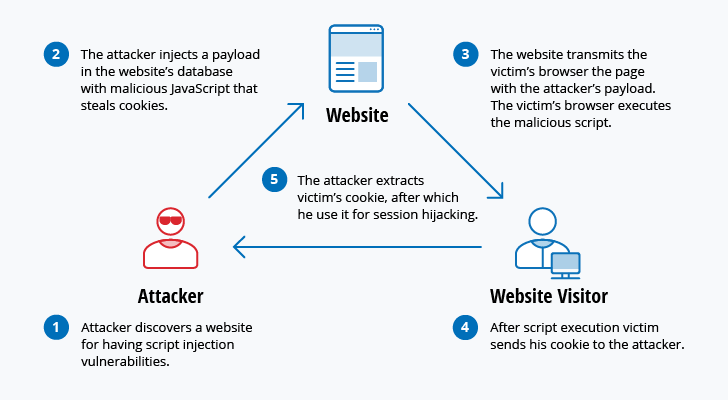- Home
- Boost Your Career With Cisco Certifications (Part 1)

Boost Your Career With Cisco Certifications (Part 1)
 The CCNA (Cisco Certified Networking Associate) certification has emerged as the most admired IT certification around the world. The certification’s key focus lies upon boosting relevant abilities to match fast deployment of technologies in modern sophisticated networking era. Having Cisco Certified Networking Associate certificate substantiates that you can develop core networking proficiency.
The CCNA (Cisco Certified Networking Associate) certification has emerged as the most admired IT certification around the world. The certification’s key focus lies upon boosting relevant abilities to match fast deployment of technologies in modern sophisticated networking era. Having Cisco Certified Networking Associate certificate substantiates that you can develop core networking proficiency.
Cisco certification boosts your networking recognition beyond Cisco products only; all through the process of certification learning, candidates will create a full understanding of networking and how network topologies act together to form an efficient and secure network.
Levels of Cisco Certifications
Cisco certifications involve three basic levels. These are:
- Cisco Entry Level Certifications
- Cisco Associate Level Certifications
- Cisco Professional-Level Certifications
- Cisco Expert-Level Certifications
Cisco’s Entry Level Certifications
Cisco has two entry-level credentials — the Cisco Certified Technician (CCT) and the Cisco Certified Entry Networking Technician (CCENT). There isn’t any prerequisites needed to get either CCT or CCENT credential, and candidates are instructed to pass an exam for every single credential.
A CCENT certified specialist installs, organizes and troubleshoots branch of an enterprise network or small sized networks, and executes basic networking security. CCENT credential is a necessary for associate level credentials just like the CCDA and CCNA.
Cisco’s Associate Level Certifications
These Associate Level Certifications involve Cisco Certified Design Associate (CCDA) and Cisco Certified Network Associate (CCNA). You need to pass one or two exams to get a CCDA or CCNA credential, solely depending upon the track you select.
The CCNA classifies fundamental skills in installing, maintaining and troubleshooting wireless or wired networks. You can select from numerous tracks covering Cyber Ops, Cloud, Collaboration, Industrial, Data Center, Switching/Routing, Service Provider, Security and Wireless.
Cisco formed CCDA to find people who can create basic wireless and wired networks in consort with incorporating voice & security solutions. The CCDA Cert is mandatory for CCDP certification. In order to get CCDA, a candidate should have a valid CCENT, CCNA Routing/Switching or any other CCIE certification, and pass out a single supplementary exam.
Which Exams To Pass
Certifications within Cisco’s certification program entails following credentials:
- Cisco Certified Network Associate (CCNA)
- Cisco Certified Design Associate (CCDA)
- Cisco Certified Technician (CCT)
- Cisco Certified Entry Networking Technician (CCENT)
- Cisco Certified Design Expert (CCDE)
- Cisco Certified Internetwork Expert (CCIE)
- Cisco Certified Architect (CCAr)
- Cisco Certified Design Professional (CCDP)
- Cisco Certified Network Professional (CCNP)
There are a number of different paths and certifications you can easily take in Cisco’s professional program; even though two key paths are network design and network operation. Take a start with entry-level CCENT, moves forward to CCNA, next to CCNP, and ends up with CCIE that is all about a standard Cisco networking certification.
Why CISCO Certifications are Significant?
If you wish to flourish your career in IT on the right track, mentioned below are a few persuasive causes to consider Cisco certs. Let have a glance upon them:
1) Proof of Your Talent and Abilities
The training you undertake to earn your cisco certification will consolidate and expand your networking related knowledge. Whether you are a total beginner or have a complete grasp, you’ll come off better prepared to get your initial job and perform well. You’ll also attain industry-recognized proof of your skills and knowledge.
2) Fast Track Your Career
Having a Cisco certification in your hand will ultimately put your career on a rapid track just because:
- Companies will have a way to substantiate you have the skills they actually require, instead of just relying upon your references or your words;
- Employing someone with certification is pleasing as it indicates lesser amount of time spent on your training for the particular role; and,
- Doing work needed to earn a certification indicates that you are committed and dedicated, potentials that employers like to see in their workforce.
3) Better On-Job Performance
Winning a job is one thing and holding it is another. Fortunately, proof suggests Cisco-certified employees to perform effectively in their roles; meaning job advancement and security are more likely.
4) Expand Your Salary
As a Cisco Certified Network Administrator even your starting salary is expected to be fairly well. Through relying on your entry-level cisco certifications you’ll be capable enough to advance in your career more proficiently and rapidly.
Career Prospects for CCNA Certification Holders
Whether you are following a network design or network operations career paths, Cisco certifications are exclusively positioned to help IT pros as they prepare to accomplish several Cisco-related career paths. Irrespective of preferred career path, job prospects are abundant for proficient Cisco certified professionals. A search for “Cisco Cert professionals” on two most popular job boards — “Indeed” and “SimplyHired”— yielded around 16,000 and 18,000 job postings, correspondingly.
What types of jobs are available? Job prospects fluctuate by factors such as knowledge, expertise and whether you are solely focused on network design or network operations. Though certainly not exhaustive, mentioned below are some of the common job prospects for cisco certification holders:
1) System Engineers (Networking/Computer/IT)
The key responsibility of a system engineer is to install and manage different systems within an organization. That might involve several hardware of PCs, routers switches or other kind of devices being utilized. For this, you will need to get sufficient knowledge of different hardware features of Switches/Router.
2) Technical Support Engineer (TSE)
Core responsibility of a Technical Support Engineer is to resolve client issues via remote access or over the phone. Technical support monitors, controls and troubleshoot network and computer system within an organization.
3) Network/ Desktop Support Engineer
It is more professionally illustrated as L1 & L2 support engineer. You will not get direct access to switches or routers, though you will need to give full support to engineers who have access.
4) Network Administrator
Network Admins and System Admins are two diverse job profiles, however, in a few small-scale businesses, it could be similar.
5) Network Engineers
This is considered as one of the most flourished job positions in networking career. They can employ as a part of IT support squad within an organization. Designing, Implementing, controlling and support of an organization’s network are their key responsibilities. Cisco networking abilities play a massive part in this job position.
The escalating sophistication in networking knowhow predicts a worldwide deficiency of proficient networking pros, which is adequate reason for you to start your networking career. Proficient learning can help to get you going, with CCNA certification training taught by Cisco certified pros with several years of experience.
Popular posts
Recent Posts
- Certified in Risk and Information Systems Control (CRISC): Exam and Salary Analysis
- Certified Kubernetes Administrator (CKA) vs. Certified Kubernetes Application Developer (CKAD): Which Path to Choose?
- Machine Learning and Big Data Analytics: New Content in the Microsoft Certified: Azure AI Engineer Associate Exam
- The New PMP Certification: What’s Changed in PMI’s Approach to Project Management in IT?
- The Impact of AI and Automation on IT Certifications: New Topics Emerging in 2024 Exams











